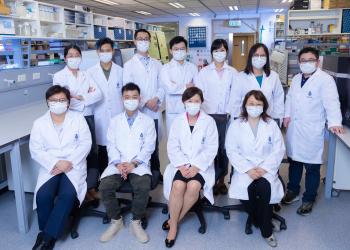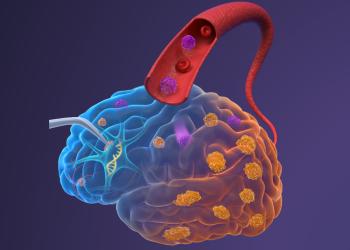News & Stories
2025
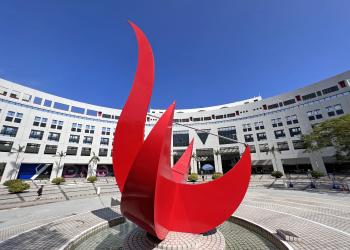
News
HKUST Leads Local Institutions in RAISe+ Scheme with 7 Funded Projects
The Hong Kong University of Science and Technology (HKUST) has emerged as the top-performing local institution in the second round of the Innovation and Technology Commission’s (ITC) Research, Academic and Industry Sectors One-plus (RAISe+) Scheme, securing funding for seven projects. Spanning health and medical sciences, artificial intelligence (AI) and robotics, advanced manufacturing, and electrical and electronic engineering, these projects underscore HKUST’s leadership in transforming pioneering research into real-world applications.
News
Opening of HKUST Shanghai Center in Xuhui District
The Hong Kong University of Science and Technology (HKUST) celebrates the opening of the HKUST Shanghai Center today at the Shanghai AI Tower in the West Bund of the Xuhui District in collaboration with the District’s Government, and the Caohejing Hi-Tech Park Development Corporation. Leveraging its strengths in chips, artificial intelligence and biomedicine, the Center is set to enhance collaboration on innovation and entrepreneurship between Hong Kong and Shanghai.
2022
2021
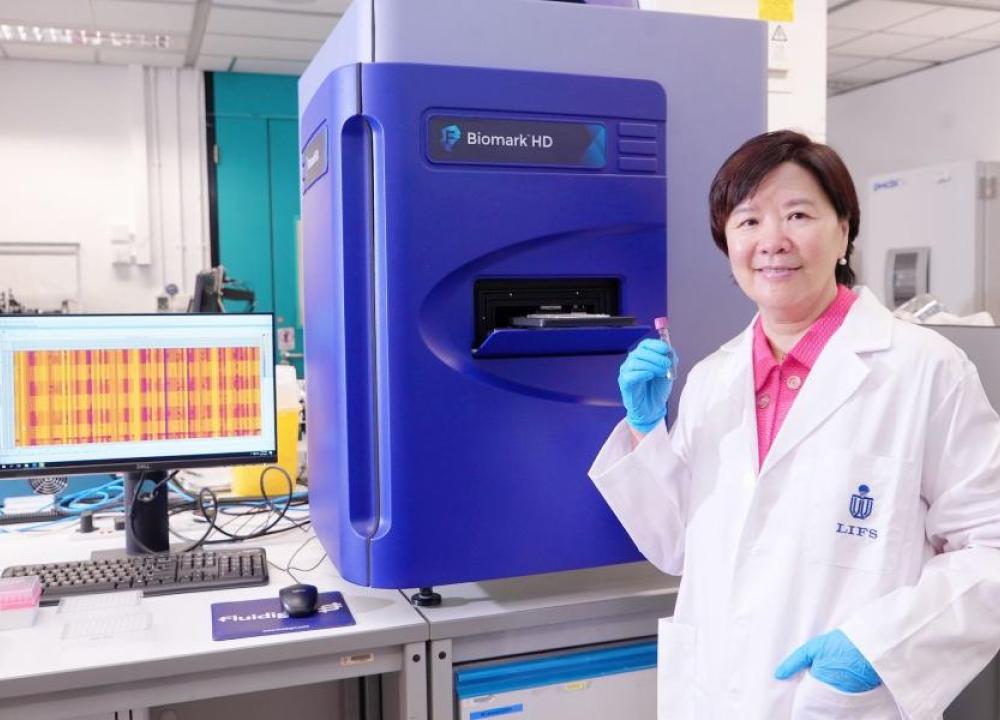
News
HKUST Scientists Develop Simple Blood Test for Early Detection of Alzheimer’s Disease
An international research team led by HKUST has developed a simple but robust blood test from Chinese patient data for early detection and screening of Alzheimer’s disease (AD) for the first time, with an accuracy level of over 96%.Currently, doctors mainly rely on cognitive tests to diagnose a person with AD. Besides clinical assessment, brain imaging and lumbar puncture are the two most commonly used medical procedures to detect changes in the brain caused by AD. However, these methods are expensive, invasive, and frequently unavailable in many countries.
News
HKUST-Beijing Tiantan Hospital Researchers Discover a New Cause for the Cerebral Cavernous Malformation
Researchers from the Hong Kong University of Science and Technology (HKUST) and Beijing Tiantan Hospital have recently uncovered a new gene mutation responsible for the non-familial patients of cerebral cavernous malformation (CCM) - a brain vascular disorder which inflicted about 10~30 million people in the world.While the mutation of three genes: namely CCM1, CCM2, and CCM3, were known to be a cause of CCM – they mostly targeted patients who has family history in this disorder – which only account for about 20 per cent of the total inflicted population. The cause for the remaining 80 per cent non-familial cases, however, were not known.
2020
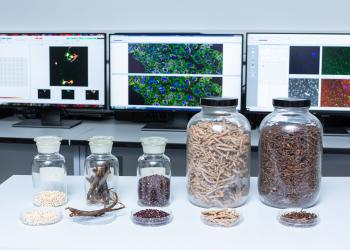
News
Strengthen Your Brain with Chinese Herbs to Prevent Alzheimer’s
Seeing how Alzheimer’s disease has turned her beloved aunt from a sprightly 75-year-old to a confusing mind, Dr. Fanny IP Chui-Fun says the experience is frustrating for her as a neuroscientist because the disease remains incurable.“My aunt was a secondary teacher who had a sharp mind. She used to help me with my homework, but now she can’t remember things and always says something that makes little sense,” says Dr. Ip.Determined to find a treatment, Dr. Ip has been researching into brain degeneration since 1993 with Prof. Amy FU Kit-Yu, Research Associate Professor in the Division of Life Science, under the guidance of world-renowned neurobiologist Prof. Nancy IP Yuk-Yu, who is Vice-President for Research and Development and the Morningside Professor of Life Science. The trio soon explored a new direction in the field predominantly associated with Western medicine.
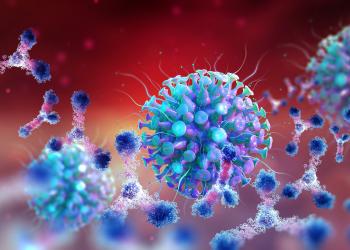
News
New Method Identifies Adaptive Mutations in Complex Evolving Populations
A research team co-led by a scientist at the Hong Kong University of Science and Technology (HKUST) has developed a method to study how HIV mutates to escape the immune system in multiple patients, which could inform HIV vaccine design.
HIV, which can lead to AIDS, evolves rapidly and attacks the body’s immune system. Genetic mutations in the virus enable it to evade immune responses mounted by T cells and antibodies, which makes it all the more difficult to design an effective solution. While there is no effective cure for the virus currently available, it can be controlled with medication.
Now, the international research team has devised a new method from conventional statistical physics to reveal patterns of selection in HIV evolution using 14 patient data sets, providing a means to efficiently distinguishing the mutations that help the virus escape the immune system from those that are only random variations.









